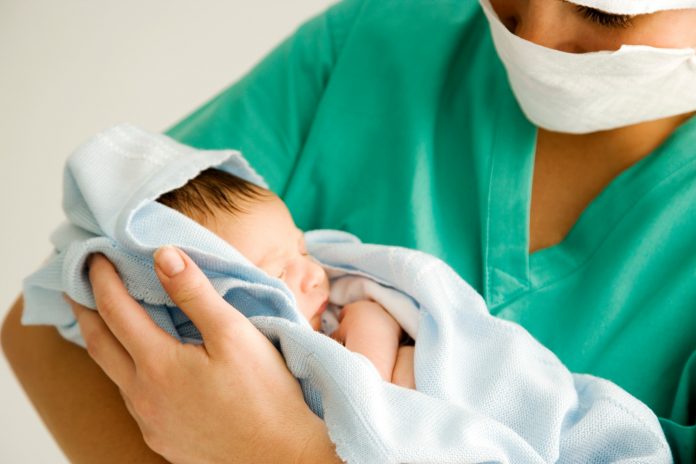Monash University researchers have developed a fast, cheap, paper test that can detect bilirubin in jaundiced newborns – the tape-paper sensor, which aims to provide results in less than 10 minutes and is on the verge of extensive clinical trials.
The joint-development by Monash University’s Faculty of Engineering, the Monash Institute of Medical Engineering and Monash Health, is said to have the potential to be commercialised for point-of-care diagnosis of neonatal jaundice in both home-care and hospital settings.
Monash researchers, led by Professor Wei Shen and Dr Weirui Tan from the Department of Chemical Engineering, in collaboration with clinical champions Associate Professor Dr James Doery and Dr Katrina Harris, have developed a paper test for bilirubin levels, which provides results in less than 10 minutes at a cost of about 60 cents each.
“Home treatment of jaundice is currently limited by expensive phototherapy equipment (biliblanket), nursing visits for invasive moderate blood volume testing, and delays in blood results being made available,” says Dr Harris, Medical Lead at Monash Children’s Hospital at Home.
Reportedly, the method developed by the research team uses tape-paper sensing and involves blood being applied directly onto paper, which is capable of separating plasma from whole blood and measuring bilirubin by a colorimetric diazotization method.
“The most promising aspect of the tape-paper sensing approach for neonatal blood sample measurement has been verified in comparison with the current hospital pathology laboratory method. And it can be done in the family home, anywhere in the world, with almost instant results,” says Dr Shen.
Jaundice is said to be a common condition that impacts roughly 60% of newborns.
A newborn’s bilirubin levels peak at about two to four days of age, commonly when they are already back home.
However, severe jaundice can cause brain damage if left untreated.
The affected baby often needs a home visit from a nurse and a blood test, which can be expensive and takes time for results to determine whether hospital readmission is required.
“The current procedure, adopted by Monash Children’s Hospital, for monitoring neonates who have been discharged three days after birth is via home-visits by nurses collecting neonates’ blood samples and then conducting blood bilirubin assays in the hospital,” says Dr Harris.
“This process is followed by doctors making treatment decisions and nurses re-visiting the infants to provide treatments. Such a delayed analysis and feedback process can prolong treatment and increases risk to jaundice babies.
“Left untreated, high levels of bilirubin may result in brain impairment. This simple, fast, accurate, low-cost and timely point-of-care analysis of total bilirubin provides an unmet need, especially in resource-limited areas.”
For more information on this research, visit: pubs.rsc.org/en/content/articlelanding/2020/lc/c9lc00939f#!divAbstract




